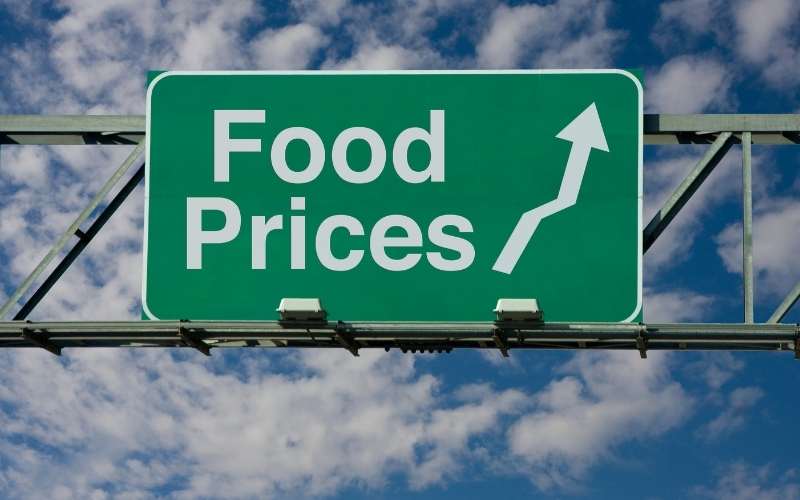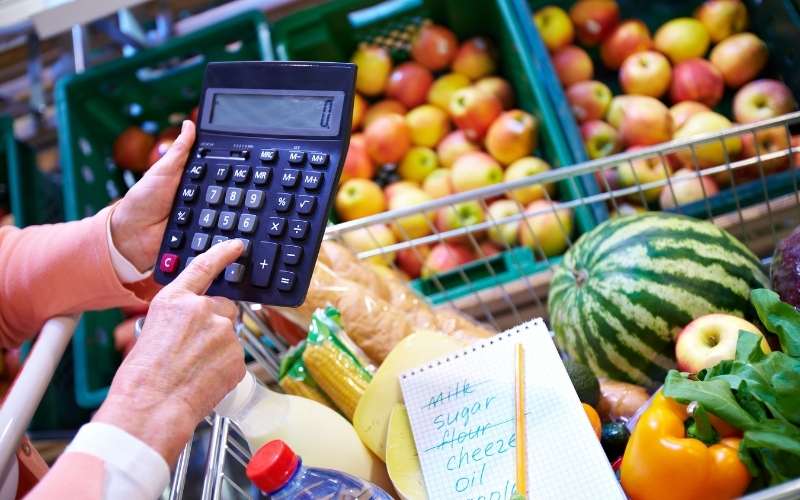Introduction to UK’s Food Industry
The UK food industry is a global leader in innovation, with high quality and safety standards and a strong environmental record. The UK food industry is the largest manufacturing sector in the UK, employing over 400,000 people.
The sector’s annual turnover is worth £108bn, with exports valued at £18bn.
The UK’s food and drink manufacturing sector is an important contributor to the growth of the wider economy. It is the largest manufacturing sector in the UK, employing over 400,000 people. Its annual turnover is worth £108 billion, with exports valued at £18 billion.
Food and drink manufacturing adds value to basic raw materials and agricultural products by transforming them into finished goods for sale to consumers through retail outlets or catering establishments. The food industry includes everything from animal feed to finished meals ready for consumption.
In addition to its economic importance, the food and drink industry also has an important role to play in relation to nutrition. In recent years there has been increasing recognition that diet is an important determinant of health and wellbeing. This recognition has seen the emergence of a number of initiatives aimed at improving the nutritional value of foods available on the market including commitments to reformulate products and improve front-of-pack labeling. There have also been initiatives aimed at encouraging consumers to make healthier choices which encourage people to eat more fruit and vegetables.
Recent Price Increases in the Food Industry and Its Impact
Food prices have been rising in the UK over the past few years. This trend has resulted in an increase in consumer demand for food products with a longer shelf life.
The term ‘long life’ is used to refer to food products that can be stored for longer than usual without going off or losing their quality. Long life products include tinned or canned foods, dried foods such as pasta, and frozen food. These kinds of food are popular with the British public because they are convenient and cheap, especially compared to fresh produce, which has become increasingly expensive.

The rise in food prices can be attributed to a number of factors, including increasing demand, a diminishing supply and global political instability.
The first factor that can be taken into consideration is the rise in demand for various food products across the world. As families become wealthier, they tend to spend their additional income on eating out and enjoying a variety of foods that were previously inaccessible to them. As more people start to eat out regularly, the demand for food rises accordingly and food products suppliers are bound to raise their prices to meet this new demand.
Inflation has been rising since the Brexit vote because of the fall in the value of the pound, which has pushed up import prices.
The governor of the Bank of England, Mark Carney told BBC Newsnight a weaker pound would mean higher import costs for manufacturers and retailers, who might then pass these on to consumers. He expected price increases to accelerate further in the coming months.
“It will gradually work its way through the system,” he said. “I would expect it to get to 2% over the course of the next few months.”
Some analysts have warned that inflation could hit 3% within months. Inflation may be rising quickly – but so are wages.
Another point is, inflation has been rising because of increase in oil prices. This is because the price of oil has been rising rapidly due to high demand from countries like China and India, which have been growing at a fast pace. As the demand for oil increases, its price keeps rising. Inflation will not come down until the rate of growth in demand for oil slows.

Inflation has been on a rise also as a result of higher imports from China and other major countries. It is expected that inflation will remain high for some time and could even rise further in future if global economic conditions remain uncertain.
There is a danger that this might create a spiral of price increases, as increased costs are passed on by producers. The consequent rise in inflation could force the Federal Reserve to raise interest rates further than it would like. This may have the effect of cooling down growth and hitting business investment.
So to control inflation, the government can do little directly to control food or oil prices. But there are other things it can do to tackle the problem:
Make sure that budget deficits are financed from abroad rather than by printing money, which would cause an increase in the money supply and help fuel inflationary pressures.
Take steps to strengthen the economy, which will help bring down unemployment and increase productivity, which will help keep wage demands under control.
Use macroeconomic policies such as monetary policy (interest rates) and fiscal policy (taxes) to cool down any part of the economy that is growing too fast and creating shortages of labor or input costs (such as oil), thereby contributing to higher inflation rates.
Families on a budget have had to cut back on spending on some items considered non-essential. These include fruit and vegetables, which are often discarded shortly before their use-by date.
As well as helping consumers save money and reduce waste, long-life food products also offer other benefits. They can be stored for months at a time without losing freshness, meaning people can stock up when they see special offers without worrying about waste.
Strategies to Be Adopted by Organizations Post Brexit
The UK food industry has experienced a number of factors that have impacted businesses in the market, with Brexit being one of the most significant. While we don’t yet know what the full impact of Brexit will be on trading conditions, it’s likely to have an impact on consumer food purchasing habits, as well as the supply chain.

As a result, there are a number of things that businesses can do to help them prepare for post-Brexit trading conditions. These include:
- Understanding how Brexit may impact the business directly and how this might affect profitability and cash flow.
- Evaluating pricing strategies in line with inflationary pressures and competition to achieve profitable sales without damaging volume numbers.
- Reviewing supply chain activity to understand where cost increases are coming from, what cost reduction opportunities can be achieved and what potential alternative suppliers exist.
- Considering whether they need support to navigate these challenges including funding options or development grants from the Government’s Growth Hub network.
It is also analyzed the impact on households’ food budgets by estimating how much extra consumers will be paying for their weekly grocery shop and what that means for their purchasing power. We also look at what strategies retailers may adopt to mitigate these risks and how manufacturers will respond to rising cost pressures.
Methods of Influencing the Consumers When Purchasing Food Products?
In times of economic downturn, customers will often become reluctant spenders. This has been particularly evident recently as the rising cost of energy, petrol and utilities has prompted consumers to spend more cautiously when purchasing non-essential items such as food. As a result, they are increasingly seeking promotions and looking for bargains in the hope of saving money.
The industry has responded to these changing consumer habits by introducing
- various promotional tactics such as reduced prices,
- money-off coupons and
- Loyalty schemes.
However, there is concern about their methods of influencing consumers’ purchasing decisions and the impact that this may have on both people’s health and the sustainability of our food supply.
Conclusion and Recommendations
Many consumers and businesses have expressed their anger about the recent rise in prices of food items. Changes in the food industry have made it tough for many to stay afloat. The food recession has left many with limited options. The recent hike in prices and decreasing consumption have been some of the reasons for this food recession.
The UK’s food industry has seen a significant increase in prices recently. The rising costs of food and commodities have an impact on the livelihoods of people at all income levels. Rising cost of raw materials is driving prices higher for many food and beverage products, yet many consumers are not willing to pay more for their groceries.
Higher food prices are passed along from farmer to distributor to retailer, which means higher prices for consumers. Households that spend a high percentage of their income on food may be particularly vulnerable.
Consumers expect price increases to be announced as ‘special offers’ by retailers.
Consumers are more likely to change their shopping habits if they notice that the price of an item has increased significantly.
There will continue to be rising costs in the food industry until new technologies or farming techniques overcome these issues.
Are you looking for a Free Consultation for Food Services Distribution? Click Here!






